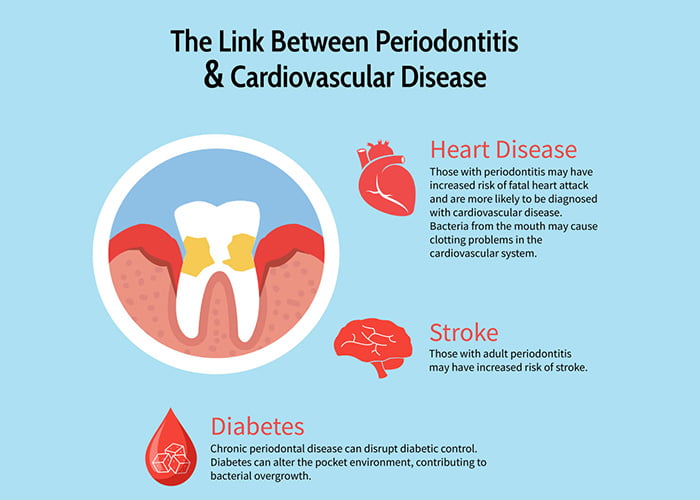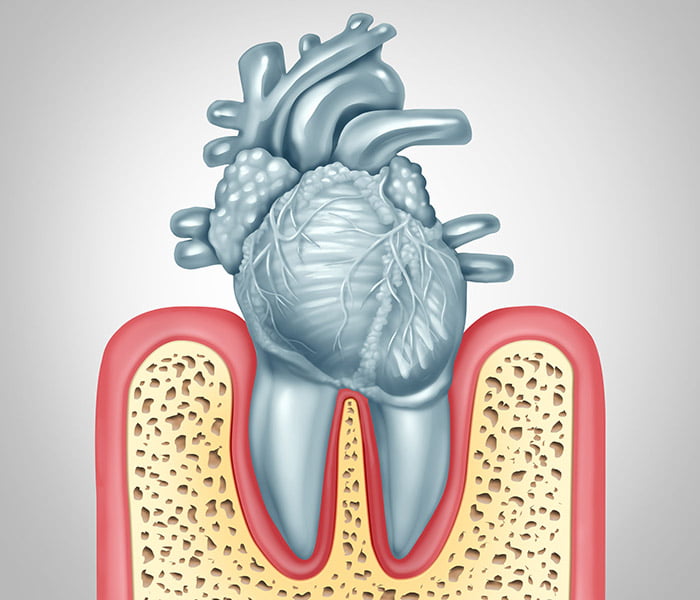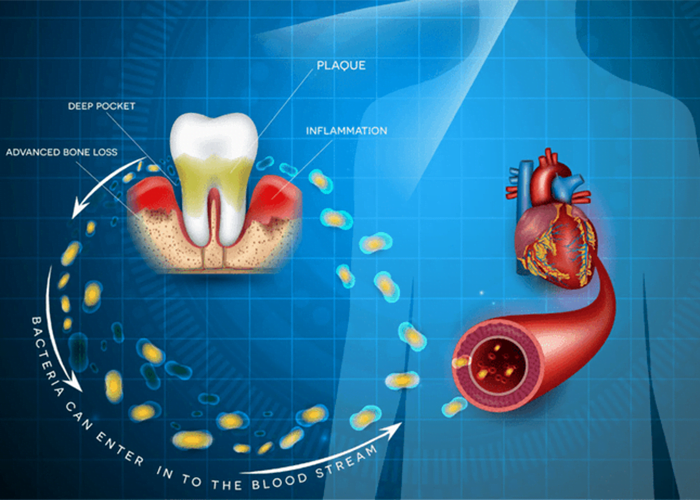Gums are an important part of your mouth. You’ve got millions of bacteria living in them. When they get sick or die, the odor they give off changes, affecting your breath.
There is no guarantee that everyone with gum disease will develop heart disease. However, they share many common risk factors including an unhealthy diet and smoking.
For decades, researchers have been trying to determine the connection between gum health and heart disease. The gum disease that begins when plaque builds up around teeth is caused by a bacteria-laden film that gets stuck to teeth.
There is evidence that gum disease can be an independent risk factor for developing heart disease. Gum disease is a risk factor for heart attacks, strokes, and other serious health issues. An unhealthy diet and smoking are other important risk factors that can lead to gum disease.

Scientists are finding more evidence that gum disease affects the overall health of your heart. If you want to keep your heart healthy, brush and floss daily.
Heart Health and Gum Disease
Keeping your gums and teeth healthy means doing things like brushing and flossing, which are important.
According to a study published by the American Heart Association (AHA), people who brush their teeth twice a day for two to three minutes have a significantly reduced risk of heart disease. A study in Sweden showed that the risk of a heart attack for patients who have never suffered from a heart attack before is three times higher if they suffer from periodontal disease.
If you have gums that bleed when brushing or flossing, you could be at risk for periodontal disease, which weakens the tissues of your mouth. This allows bacteria to form plaque below your gum line. Some people may have to use periodontal surgery to get rid of plaque and calculus that collect along the gums.
Gingivitis is an early sign of periodontitis. Left untreated, it can progress to periodontitis. This disease causes the gums to recede, eventually leading to tooth loss. A lot of people have poor oral health because they don’t brush and floss regularly. And as a result, they have a higher rate of cardiovascular issues like stroke and heart attack.
Taking Care of Your Gums
Early detection of gum disease is one of the best ways to prevent gum disease. You can take care of your dental hygiene by taking care of your oral hygiene, and by staying diligent about looking for the common signs of gum disease. Some of the common symptoms of gum disease include:
- Persistent bad breath
- Swollen, tender, or red gums
- Receding gums
- Bleeding while brushing, flossing, or eating hard food

Be sure to visit your dentist right away if you notice any of the symptoms listed above. Treating mild gum disease (gingivitis) is a simple, straightforward process that primarily involves keeping up with your oral hygiene. It’s important that you brush and floss your teeth twice or more daily and see a dentist every six months for a dental cleaning and evaluation.
If your gum disease has advanced to a more serious stage, known as periodontitis, your dentist may recommend scaling and root planning. Your dentist will remove plaque, tartar deposits and smooth the roots of your teeth to help them bond with your gums. Severe cases of gum disease may require a gum tissue graft, pocket reduction, or a guided tissue regeneration.
In Conclusion
The importance of good oral health can not be underestimated. It affects your ability to chew comfortably, speak intelligibly, and smile confidently. It is more important than ever for people to take a proactive approach to prevent and treat gum disease because it has been linked to heart problems. If you have any questions or concerns about your general or oral health, be sure to contact your dentist or general care physician.
See Dentist For Life
Looking for an experienced and trusted dentist in Marysville, Ohio? Look no further than Dentist For Life! We provide comprehensive dental care for patients of all ages. We take a wide variety of insurance plans and are currently accepting new patients. You can reach us at (937) 707-1111 or schedule your appointment online here.



